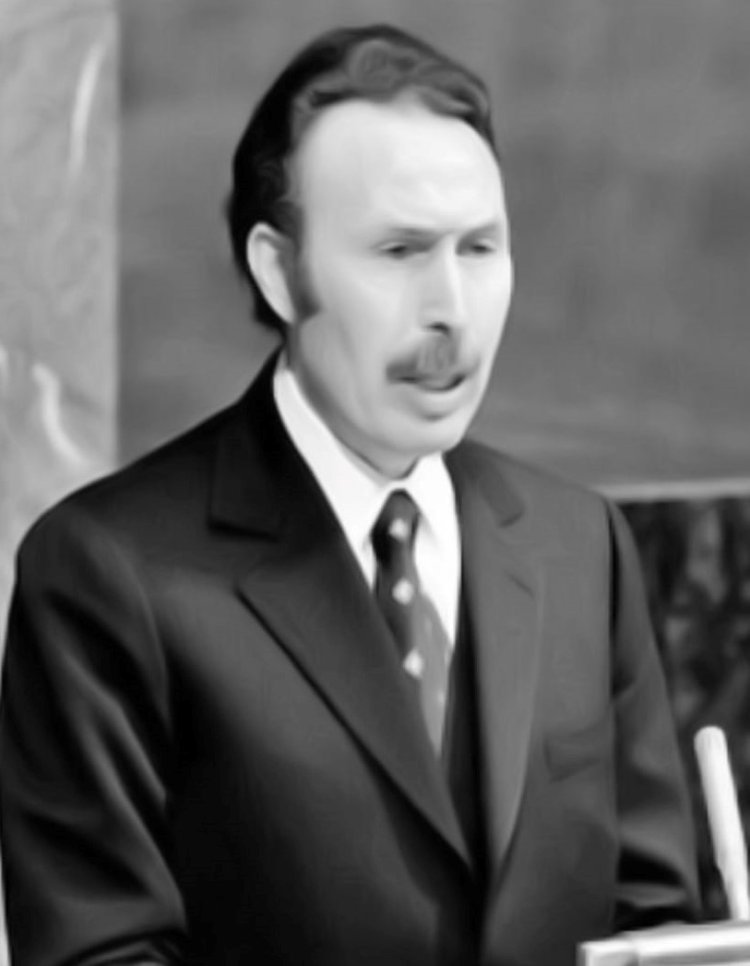Houari Boumediene ... revolutionary who reinforced the Algerian State-building

Mohamed Ben Brahim Boukhrouba, known as “Houari Boumediene”, was born in the Algerian countryside on August 23, 1932 and comes from a simple family of poor peasants. He grew up in a religious family, knew the Koran by heart, studied Arabic and, like his compatriots, was forced to join the French army. He drew up a plan to flee from Algeria to Tunisia until he settled in Egypt where he continued his studies at al-Azhar al-Sharif religious University. The French authorities followed him after fleeing from the military service of the French army and sent a memorandum to the French Embassy in Egypt to deport him from Egypt during King Farouk’s reign. However, the glorious July Revolution led by the Algerian Free Officers saved him and he remained in Egypt.

The political climate in Egypt after the July 1952 revolution was aimed at combining science and political struggle. Mohamed Boukhrouba joined the Algerian People's Party - the great struggle against colonialism - and was an important member of the Arab Maghreb Bureau in Cairo, created by the National Movement in the Arab Maghreb region (Morocco, Algeria and Tunisia) in order to coordinate their efforts to liberate North Africa from French colonialism. Egypt was, at the time, an incubator of Arab and African liberation movements, but also the shelter of leaders fighting against colonialism. In addition to Boumediene, Egypt also welcomed the leader of the resistance movement against France in Morocco during the Rif war Mohamed Ben Abdelkrim el-Khattabi, a Moroccan leader and one of the heroes of the resistance against the French. His asylum was arranged by the Arab Maghreb Bureau and the League of Arab States. President Gamal Abdel Nasser ordered the provision of all the facilitation and military assistance needed for Algerian revolutionaries until the acquisition of independence.
Boumediene joined the Algerian army of national liberation - armed wing of the National Liberation Front - in the western region in 1954, and fought alongside Ahmed Ben Bella until the accession of Algeria of independence. During his military career, he held senior state positions, such as Minister of Defense in the independent government under Ben Bella in 1962. Boumediene closely monitored Ben Bella's performance, and although they were companions in the liberation process, Boumediene was not entirely convinced of Ben Bella's governance style. He therefore decided to seize power by a military coup against Ben Bella in 1965, and Boumediene became President of the Republic in what so- called "revolutionary correction" until his death in 1978.
Boumediene did not possess the charisma of Ben Bella, but thanks to his skills, his success and his confidence in himself, he was able to acquire great popularity. As soon as he took office, he drew up development plans for Algeria, maintained his programs and benefited from the export earnings of oil and natural gas. He also formed a government of technocrats to work on developing the national oil industry. The industrial program was diversified: he allocated nearly half of the $ 5 billion of development investment to industrialization during the period 1970-1973. He urged Algerians to participate in the transformation of their country into one of the most powerful countries in the Third World.
He worked to consolidate the agricultural revolution by equitably distributing the means of agricultural production, in addition to improving the standard of living of the peasants, as well as the field of culture with the aim of restoring the Algerian national character, which has been erased by colonialism, including language and religion. He also worked to strengthen Arabization in the administration, media and education sectors, but it did not fully achieve this goal and Arabization remained purely formal.
At the regional and international levels, Boumediene played a major role in supporting national liberation issues, as well as the Palestinian cause, stating that "Algeria is with Palestine in all circumstances". Algeria was also, under Boumedienne's rule, the second country to have supported Egypt during the 1973 war. Boumediene was the first president of the Third World to speak in Arabic at the United Nations on the need for a new world economic order putting an end to the exploitation of the major powers at the expense of vulnerable countries, noting that Boumediene was Secretary-General of the Non-Aligned Movement (1973-1976).
Boumediene died on December 27, 1978, leaving a history after his death marking his honorable struggle. He was a patriotic fighter, a faithful Arab and a proud African. He said: “The history of peoples is just a series of different battles. The country wins a victory in a battle and rearms to fight a new battle. We came out of the battle of independence, it is only a weapon needed to fight another battle: that of renaissance, progress and life.”
